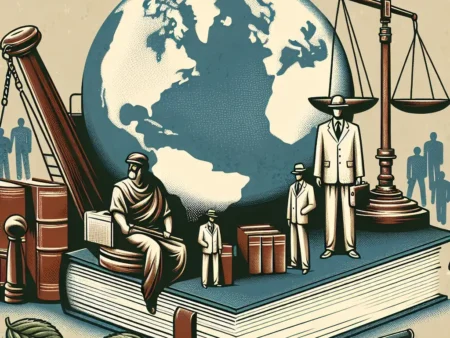Dampak hukum terhadap TKI yang terkena masalah di luar negeri meliputi perlindungan hak, penegakan hukum, dan pemulangan ke tanah air.
Dampak Hukum Terhadap TKI yang Terkena Masalah di Luar Negeri
-
Table of Contents
- The Impact of Law on Indonesian Migrant Workers Facing Problems Abroad
- Introduction
- The Legal Framework for Indonesian Migrant Workers
- Challenges Faced by Indonesian Migrant Workers
- Exploitation and Abuse
- Contract Violations
- Legal and Administrative Barriers
- The Role of Indonesian Law in Protecting Migrant Workers
- Pre-Departure Training and Orientation
- Regulation of Recruitment Agencies
- Establishment of Support Agencies
- Bilateral Agreements and Diplomatic Efforts
- Conclusion
The Impact of Law on Indonesian Migrant Workers Facing Problems Abroad

Introduction
Indonesia is known for its large number of migrant workers who seek employment opportunities abroad. These workers, commonly referred to as Tenaga Kerja Indonesia (TKI), face various challenges and risks while working in foreign countries. The Indonesian government has implemented several laws and regulations to protect the rights and welfare of these migrant workers. This article aims to explore the impact of these laws on TKIs who encounter problems while working overseas.
The Legal Framework for Indonesian Migrant Workers
Indonesia has established a comprehensive legal framework to regulate the recruitment, placement, and protection of its migrant workers. The main legislation governing this area is Law No. 18 of 2017 concerning the Protection of Indonesian Migrant Workers. This law sets out the rights and obligations of both the workers and the recruitment agencies involved in the process.
Under this law, recruitment agencies are required to obtain a license from the government and comply with specific standards and procedures. They must provide accurate information to the workers regarding their employment conditions, wages, and legal rights. The law also prohibits the collection of excessive fees from the workers, ensuring that they are not exploited during the recruitment process.
Furthermore, the law mandates the establishment of a Migrant Workers Protection Agency (BP2MI) to oversee the implementation of the regulations and provide support to the workers. The agency is responsible for handling complaints, mediating disputes, and coordinating with foreign governments to ensure the welfare of Indonesian migrant workers.
Challenges Faced by Indonesian Migrant Workers
Despite the existence of laws and regulations, Indonesian migrant workers still face numerous challenges and problems while working abroad. These challenges can be categorized into several key areas:
Exploitation and Abuse
Many TKIs experience exploitation and abuse from their employers. They may be subjected to long working hours, low wages, and unsafe working conditions. In extreme cases, they may even face physical or sexual abuse. The lack of effective monitoring and enforcement mechanisms in foreign countries often exacerbates these issues.
Contract Violations
Contract violations are another common problem faced by Indonesian migrant workers. Employers may fail to fulfill their contractual obligations, such as providing the agreed-upon wages or benefits. Some workers are also deceived by fraudulent recruitment agencies that promise lucrative job opportunities but fail to deliver on their promises.
Legal and Administrative Barriers
Language barriers, unfamiliarity with local laws, and limited access to legal assistance pose significant challenges for TKIs when dealing with legal and administrative issues. They may struggle to understand their rights, file complaints, or seek redress for any grievances they have. This often leaves them vulnerable and unable to navigate the complex legal systems of foreign countries.
The Role of Indonesian Law in Protecting Migrant Workers
Despite the challenges faced by Indonesian migrant workers, the legal framework in Indonesia plays a crucial role in protecting their rights and welfare. The following are some key ways in which Indonesian law addresses the issues faced by TKIs:
Pre-Departure Training and Orientation
The Indonesian government requires all prospective migrant workers to undergo pre-departure training and orientation programs. These programs aim to equip workers with essential knowledge and skills to adapt to their new working environment, understand their rights, and recognize potential risks and exploitation. By providing this training, the government seeks to empower workers and reduce their vulnerability to abuse and exploitation.
Regulation of Recruitment Agencies
The licensing and regulation of recruitment agencies are crucial in preventing fraudulent practices and ensuring the fair treatment of workers. The government imposes strict requirements on agencies, including the provision of accurate information, transparent fee structures, and adherence to ethical recruitment practices. This helps to minimize the risks faced by workers during the recruitment process.
Establishment of Support Agencies
The establishment of the Migrant Workers Protection Agency (BP2MI) has significantly improved the support available to Indonesian migrant workers. The agency provides various services, including legal assistance, mediation, and repatriation support. It also collaborates with foreign governments to address issues faced by TKIs and ensure their welfare is protected.
Bilateral Agreements and Diplomatic Efforts
Indonesia has entered into bilateral agreements with several countries to enhance the protection of its migrant workers. These agreements outline the rights and obligations of both the sending and receiving countries, ensuring that workers are treated fairly and their rights are respected. Diplomatic efforts are also made to address specific issues faced by TKIs in certain countries, such as negotiating for better working conditions or resolving disputes.
Conclusion
The impact of law on Indonesian migrant workers facing problems abroad is significant. While challenges still exist, the legal framework in Indonesia provides essential protections and support to these workers. Through the regulation of recruitment agencies, pre-departure training programs, and the establishment of support agencies, the government aims to minimize the risks faced by TKIs and ensure their rights and welfare are safeguarded.
However, continuous efforts are needed to strengthen the implementation and enforcement of these laws, both domestically and internationally. Collaboration with foreign governments, increased awareness among workers, and improved access to legal assistance are crucial in addressing the challenges faced by Indonesian migrant workers. By doing so, Indonesia can further enhance the protection and well-being of its valuable workforce abroad.







